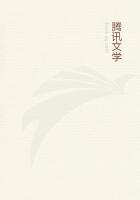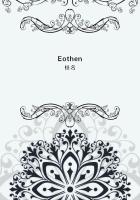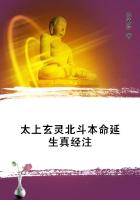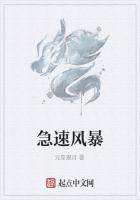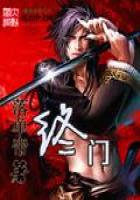When the post brought his letter, Adams looked at it as though he were a debtor who had begged for an extension. He read it with as much relief as the debtor, if it had brought him the loan. The letter gave the new writer literary rank. Henceforward he had the ******* of the press. These articles, following those on Pocahontas and Lyell, enrolled him on the permanent staff of the North American Review . Precisely what this rank was worth, no one could say; but, for fifty years the North American Review had been the stage coach which carried literary Bostonians to such distinction as they had achieved. Few writers had ideas which warranted thirty pages of development, but for such as thought they had, the Review alone offered space. An article was a small volume which required at least three months' work, and was paid, at best, five dollars a page. Not many men even in England or France could write a good thirty-page article, and practically no one in America read them; but a few score of people, mostly in search of items to steal, ran over the pages to extract an idea or a fact, which was a sort of wild game -- a bluefish or a teal -- worth anywhere from fifty cents to five dollars. Newspaper writers had their eye on quarterly pickings. The circulation of the Review had never exceeded three or four hundred copies, and the Review had never paid its reasonable expenses. Yet it stood at the head of American literary periodicals; it was a source of suggestion to cheaper workers; it reached far into societies that never knew its existence; it was an organ worth playing on; and, in the fancy of Henry Adams, it led, in some indistinct future, to playing on a New York daily newspaper.
With the editor's letter under his eyes, Adams asked himself what better he could have done. On the whole, considering his helplessness, he thought he had done as well as his neighbors. No one could yet guess which of his contemporaries was most likely to play a part in the great world. A shrewd prophet in Wall Street might perhaps have set a mark on Pierpont Morgan, but hardly on the Rockefellers or William C. Whitney or Whitelaw Reid.
No one would have picked out William McKinley or John Hay or Mark Hanna for great statesmen. Boston was ignorant of the careers in store for Alexander Agassiz and Henry Higginson. Phillips Brooks was unknown; Henry James was unheard; Howells was new; Richardson and LaFarge were struggling for a start. Out of any score of names and reputations that should reach beyond the century, the thirty-years-old who were starting in the year 1867 could show none that was so far in advance as to warrant odds in its favor. The army men had for the most part fallen to the ranks. Had Adams foreseen the future exactly as it came, he would have been no wiser, and could have chosen no better path.
Thus it turned out that the last year in England was the pleasantest.
He was already old in society, and belonged to the Silurian horizon. The Prince of Wales had come. Mr. Disraeli, Lord Stanley, and the future Lord Salisbury had thrown into the background the memories of Palmerston and Russell. Europe was moving rapidly, and the conduct of England during the American Civil War was the last thing that London liked to recall. The revolution since 1861 was nearly complete, and, for the first time in history, the American felt himself almost as strong as an Englishman. He had thirty years to wait before he should feel himself stronger. Meanwhile even a private secretary could afford to be happy. His old education was finished; his new one was not begun; he still loitered a year, feeling himself near the end of a very long, anxious, tempestuous, successful voyage, with another to follow, and a summer sea between.
He made what use he could of it. In February, 1868, he was back in Rome with his friend Milnes Gaskell. For another season he wandered on horseback over the campagna or on foot through the Rome of the middle ages, and sat once more on the steps of Ara C渓i, as had become with him almost a superstition, like the waters of the fountain of Trevi. Rome was still tragic and solemn as ever, with its mediæ;val society, artistic, literary, and clerical, taking itself as seriously as in the days of Byron and Shelley. The long ten years of accidental education had changed nothing for him there. He knew no more in 1868 than in 1858. He had learned nothing whatever that made Rome more intelligible to him, or made life easier to handle. The case was no better when he got back to London and went through his last season. London had become his vice. He loved his haunts, his houses, his habits, and even his hansom cabs. He loved growling like an Englishman, and going into society where he knew not a face, and cared not a straw.
He lived deep into the lives and loves and disappointments of his friends.
When at last he found himself back again at Liverpool, his heart wrenched by the act of parting, he moved mechanically, unstrung, but he had no more acquired education than when he first trod the steps of the Adelphi Hotel in November, 1858. He could see only one great change, and this was wholly in years. Eaton Hall no longer impressed his imagination; even the architecture of Chester roused but a sleepy interest; he felt no sensation whatever in the atmosphere of the British peerage, but mainly an habitual dislike to most of the people who frequented their country houses; he had become English to the point of sharing their petty social divisions, their dislikes and prejudices against each other; he took England no longer with the awe of American youth, but with the habit of an old and rather worn suit of clothes. As far as he knew, this was all that Englishmen meant by social education, but in any case it was all the education he had gained from seven years in London.


